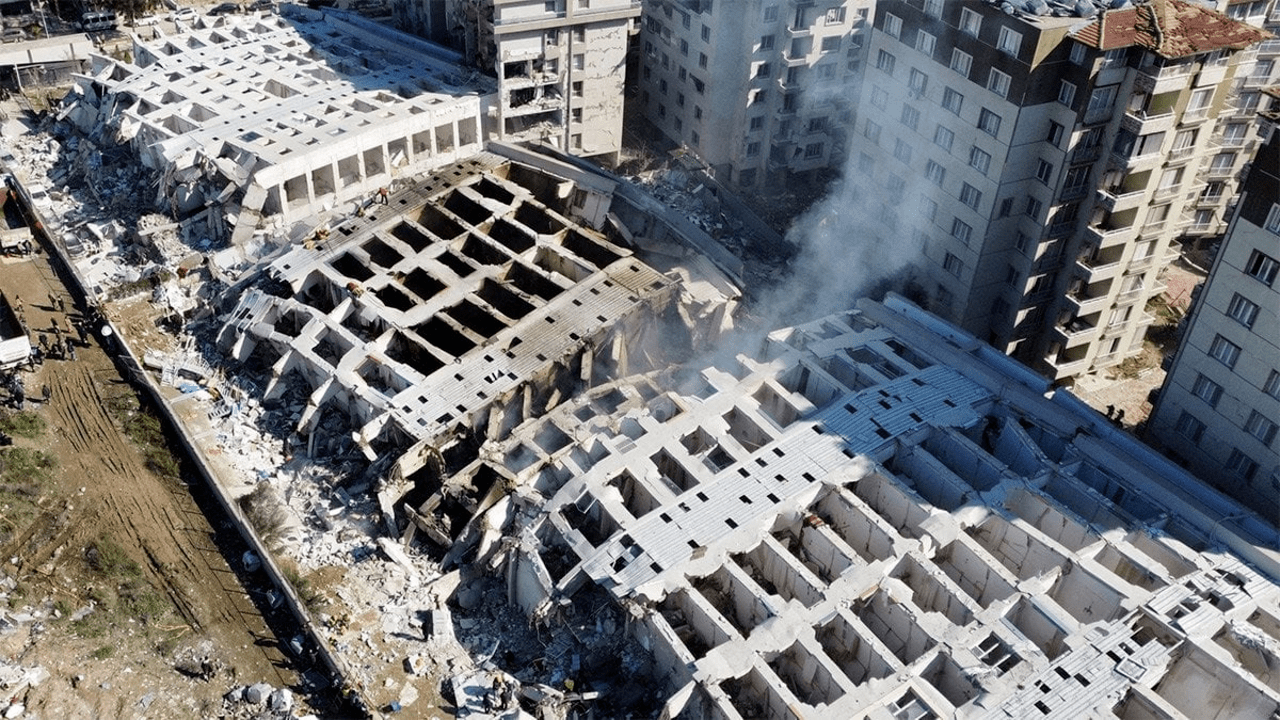Experts say contractors one dimension of negligence, call for political accountability after quake destruction
Former public prosecutor Ali Özgündüz and Chamber of Architects president Eyüp Muhçu have called for political accountability for the widespread destruction in the earthquake-hit provinces, by saying that contractors are just one dimension of the bad construction.
Fatih Saygın / Gazete Duvar
As reports reveal the detention of several building contractors in the aftermath of two major earthquakes in southeastern Turkey, Chamber of Architects president Eyüp Muhçu has warned that contractors are just one dimension of the negligence and also called for political accountability.

“It is not right to make an evaluation just based on one dimension of the accountability chain. The whole process, from planning to projects, from material selection to structure inspections, needs to be looked into. Criminality is evaluated based on this chain of accountability,” Muhçu told Gazete Duvar in an interview.
Muçu said that efforts to put the blame only on contractors are an effort to acquit the whole system. “We also need to question the structure system that is not resilient to earthquakes. Those who have enforced and implemented this system, those who have made sure that citizens partake in this system are the first ones responsible (for the widespread destruction). It is not correct to make an evaluation by overlooking this. Putting the responsibility on just one level of the chain, is an effort to absolve the demolished zoning system,” he said.

Ali Özgündüz, a former public prosecutor and former lawmaker from the main opposition Republican People’s Party (CHP), also evaluated the legal process in the aftermath of the Feb. 6-dated earthquakes, saying that evidence and concrete samples need to be taken from the demolished buildings in the presence of prosecutors or government officials.
Özgündüz, one of the prosecutors that took part in the investigations during the 1999 Marmara Earthquake, said: “Even if all reports disappear, the samples received from the (demolished) buildings, will be the essential evidence. If these samples expose that construction was done against the regulations, then authorities will tell the relevant people, ‘Come and give an accountability of this.’”
Özgündüz said that the investigations will be based on the charge of “involuntary manslaughter” and municipality officials also need to stand trial for giving the relevant authorization and failing to inspect the structures. “If there are municipality officials that overlooked construction violations, they will also stand trial for complicity in the crime.”
Özgündüz said that politicians also need to give an account for the disaster due to their moves such as zoning amnesty laws. “If the buildings that collapsed had benefitted from construction amnesty, who will be responsible for this? Citizens will say, ‘I have received the registration documents with construction amnesty but no one has done an analysis to check for earthquake regulations.’ Therefore, this (disaster) has also political responsibility. Unfortunately, our nation does not demand that such illegal structures be demolished, but on the contrary demand that such illegal structures be overlooked.”
As the death toll exceeds 30,000 in the aftermath of the Feb. 6-dated major earthquakes in southeastern Turkey, public outrage is growing.
People have been pointing out that monitoring of the construction regulations only exists on paper. The widespread catastrophe is interpreted as an indication that there are significant issues with the adoption and enforcement of the required construction standards.
The Justice and Development Party (AKP) government has issued several construction amnesty laws in the past, pardoning illegal structures if the relevant fine was paid – although these buildings did not meet the requirements in the earthquake regulations.
(English version by Didem Atakan)

 Several contractors detained during attempt to flee Turkey after their buildings collapse in quakesDomestic
Several contractors detained during attempt to flee Turkey after their buildings collapse in quakesDomestic 2019 video of Erdoğan praising zoning amnesty in quake-hit province goes viralDomestic
2019 video of Erdoğan praising zoning amnesty in quake-hit province goes viralDomestic